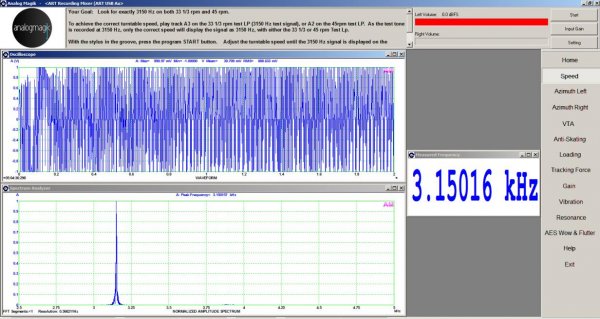I have not knowledge of how they cut vinyl. How accurate to the specified speed is it when they were cut. How much speed deviation is allowed to still hear music as intended.
Kind regards,
Tang
Hi Tang,
"How much speed deviation is allowed to still hear music as intended?" You would think it is simple, but that question may have many different answers.
I'll start upside down with a side note: I believe speed stability is as important as or more important than speed accuracy. I'll approach this from the listener's perspective rather than from the record manufacturer's or lathe master's perspective - which warrants its own discussion.
"... as intended." - That could mean "a reasonable simulacrum" of what you heard from a real performance, given that it is an audio reproduction which depends on the quality of the reproducing system.
Another answer might be: it depends on your own expectations and assessment.
A slightly different approach may be: How much speed deviation are you willing to tolerate or accept? I suspect many vinylphiles would say "I'm happy with the sound of my turntable", without having experienced a 'table that is less accurate or more accurate. Many may believe what we hear is what is intended. I suspect many audiophiles don't have an experience of more accurate or less accurate - more or less deviation. A common notion suggests pitch deviation is the threshold of audible accuracy.
While agreeing that we all have our individual likes, preferences and tolerances, I also believe that some turntables are sonically better than others and that it is possible for a gross or broad consensus about that to obtain. I also believe it is possible to hear differences between 'tables that are more speed stable and accurate than others. And those differences can go far beyond pitch deviation. Having experience with such is, imo, important to acknowledging differences.
For example, I experienced considerably improved dynamics, dynamic contrast, spatial characteristics (soundstage breadth, depth, height, dimensionality) and tonality, among other attributes, with my Monaco 2.0 than I did with say, my SOTA Sapphire, Teres 320, or Manaco 1.5 'tables. I still enjoyed playing music with them - every thing sounds good until you hear something better. While we wrangle about the path from sonics back to physical characteristics, I know there is less speed deviation with v2.0 and I attribute that to much of the differences I hear and like. So are more consistently life-like dynamics intended? Is the tonality of that trumpet more like a real trumpet playing? Is that intended? Are those locatable back-wall reflections of the timpani intended? What can you accept? And what do you want?
I'd like very much to hear what others think.





